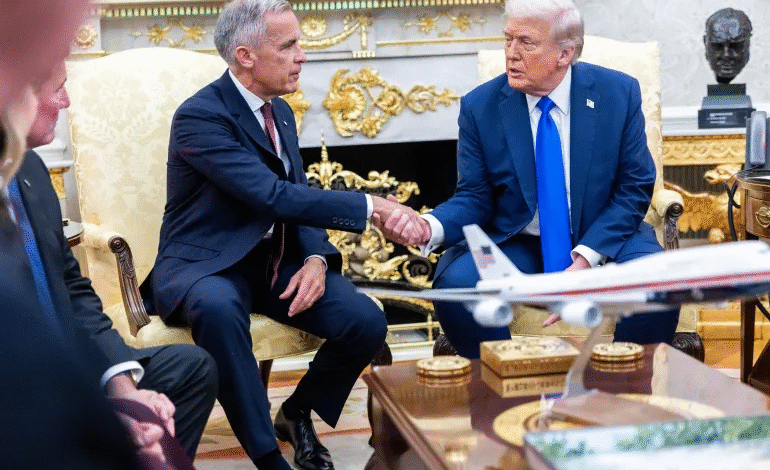Trump Ends Trade Talks with Canada, Accuses Ottawa of Misusing Reagan’s Remarks

U.S. President Donald Trump announced the termination of all trade negotiations with Canada, accusing Ottawa of using statements attributed to former President Ronald Reagan in a misleading advertising campaign against U.S. tariffs.
Trump wrote on his platform, Truth Social: “Given their outrageous behavior, all trade negotiations with Canada have been terminated.” He added that the Ronald Reagan Foundation confirmed that the Canadian government used a “fraudulent and false” advertisement showing Reagan speaking negatively about tariffs. According to Trump, the ad was designed to “interfere with the U.S. Supreme Court’s upcoming decision” on his international tariffs.
The Ronald Reagan Foundation stated on X that the Ontario provincial government had selectively used audio and video clips from a 1987 radio address by Reagan. The foundation noted that the advertisement “distorts” the former Republican president’s message on trade and is reviewing its legal options.
The ad portrays Reagan criticizing tariffs on foreign goods, claiming they lead to job losses and trade wars—content that reportedly angered Trump. Earlier this week, Ontario Premier Doug Ford said Trump had seen the ad, commenting, “I’m sure he wasn’t very happy about it.”
Canadian Prime Minister Mark Carney emphasized that Canada would not allow the United States unfair access to its markets if trade negotiations fail.
Although about 85% of goods between the U.S. and Canada are exempt from tariffs under the North American Free Trade Agreement, the tariffs imposed by Trump on sectors like steel, aluminum, and automobiles have negatively impacted Canadian businesses and resulted in job losses.
The two sides have been negotiating a potential agreement for steel and aluminum sectors for several weeks. The U.S., Canada, and Mexico are also scheduled to review the 2020 North American Free Trade Agreement next year. During his presidency, Trump used tariffs as leverage against several countries, pushing U.S. tariff levels to their highest since the 1930s.








